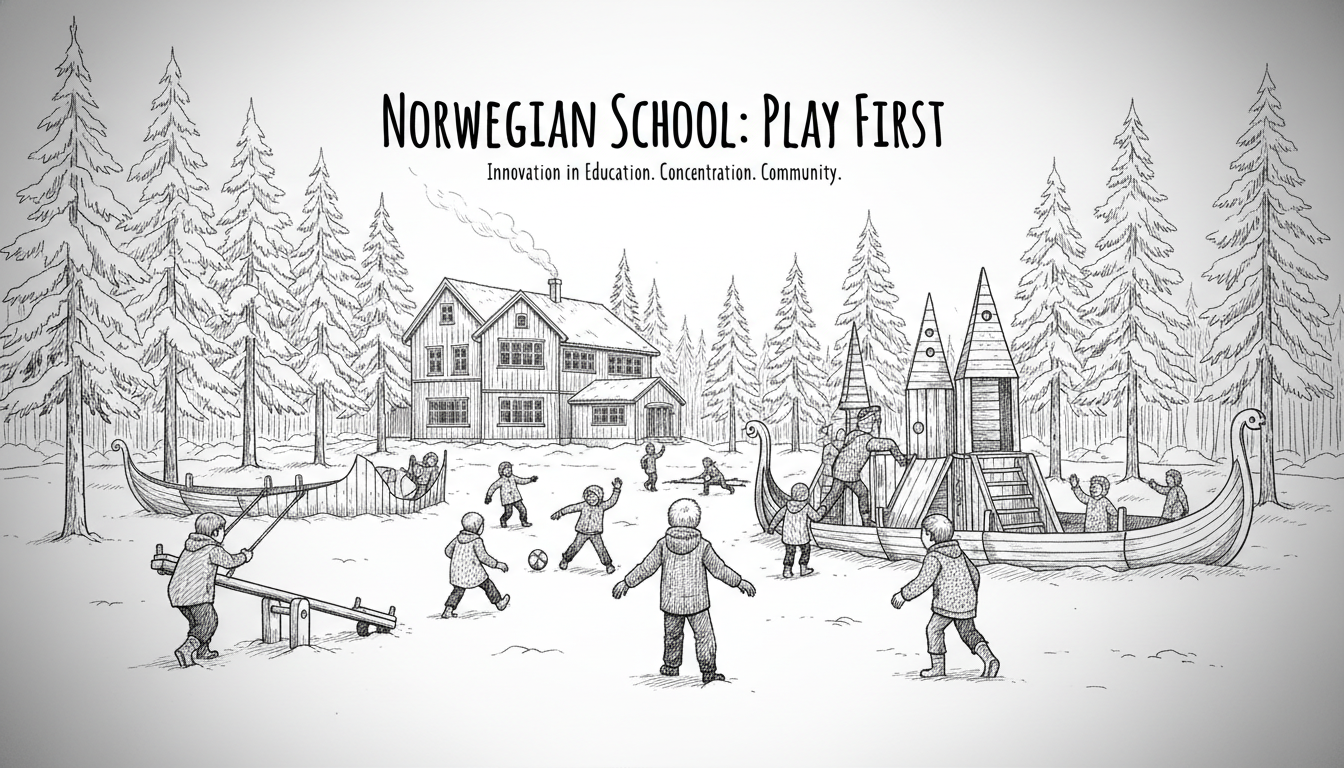At Lervig School in Stavanger, students begin each morning with an hour of active play instead of traditional lessons. The playground fills with children playing tag and other games before academic classes start. This innovative approach challenges conventional school schedules by prioritizing physical activity at the day's beginning.
School administrator Linn Endresen explains the program's benefits. "We see children running around for a full hour until they're exhausted," she observes. "These are the same children we previously asked to sit still during first period. Now we understand why that was difficult for them."
The SAL program, which stands for the school's morning activity period, represents a fundamental shift in educational philosophy. Rather than trying to change children to fit traditional classroom expectations, the school adapts its schedule to meet children's developmental needs. Research supports this approach, showing physical activity improves concentration and learning readiness.
Cecilie Evertsen, a researcher at the National Center for Learning Environment and Behavioral Research, confirms the scientific basis for Lervig's program. "What makes Lervig unique is that the school offers all grade levels an opportunity to participate in sensory-motor activities every single morning," she notes. Her research team uses Lervig School as part of their ongoing studies about learning environments.
The program's structure involves dedicating one hour from the regular curriculum across all subjects over a seven-year implementation period. This creative scheduling allows for daily physical activity without extending the school day. The approach has gained attention throughout Norway's educational community.
Political support for increased play in schools appears to be growing. Christian Evenshaug of the Education Association reports that all political parties in recent election campaigns expressed support for more play in schools. This consensus provides teachers and school administrators with important backing for implementing similar programs.
Not everyone expresses complete enthusiasm about the time allocation. Simen Velle, education policy spokesperson for the Progress Party, voices measured support. "Initially, I'm skeptical about whether 60 minutes of play at all levels represents sensible use of time," he acknowledges. "But we believe individual schools should have significant freedom to try different learning models."
The program demonstrates particular benefits for students who previously struggled with classroom concentration. Teachers report fewer students needing breaks from the classroom, and improved social connections among children who previously had difficulty making friends. The morning play period also provides valuable informal interaction time between teachers and students.
Lervig School's approach forms part of Stavanger municipality's Brain-Friendly School initiative, which recently received the Mensa Prize for educational innovation. Other schools in Norway are increasingly focusing on play-based learning approaches, though Lervig's comprehensive daily program remains distinctive.
The real test of such programs lies in their long-term educational outcomes. While initial results appear positive, researchers will continue monitoring whether increased physical activity translates into improved academic performance over time. For now, the sounds of playing children each morning signal a refreshing approach to education that acknowledges children's fundamental need for movement and play.

